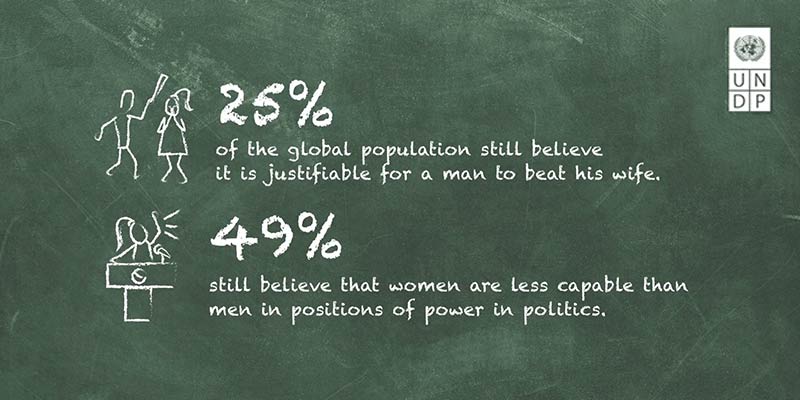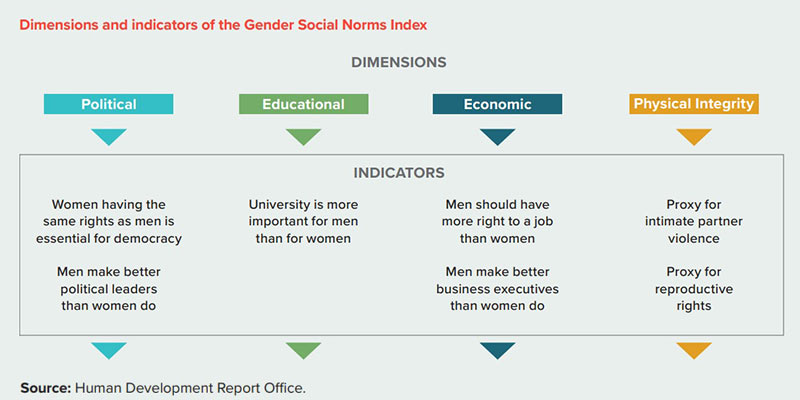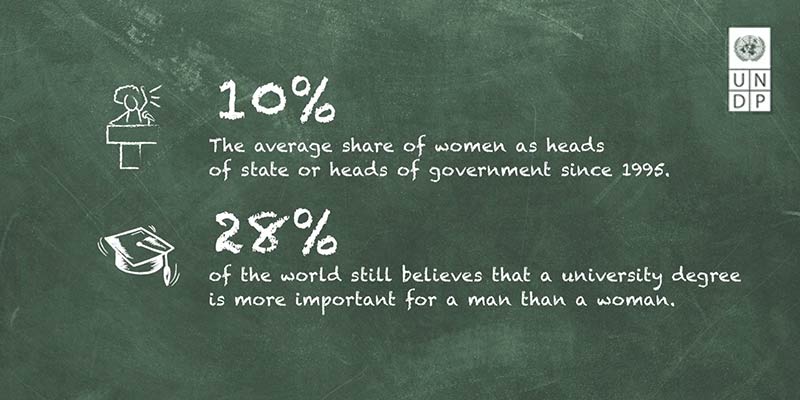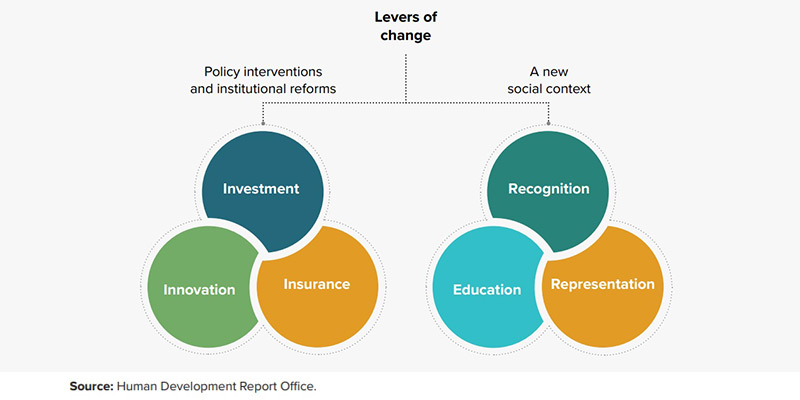- World
- Jun 17
No progress on biases against women in a decade
• The latest Gender Social Norms Index (GSNI) report has revealed no improvement in biases against women in a decade, with almost nine out of 10 men and women worldwide still holding such biases today.
• According to the UN Development Programme’s report, half of people worldwide still believe men make better political leaders than women, and more than 40 per cent believe men make better business executives than women.
• A staggering 25 per cent of people believe it is justified for a man to beat his wife.
• These biases drive hurdles faced by women, manifested in a dismantling of women’s rights in many parts of the world with movements against gender equality gaining traction and, in some countries, a surge of human rights violations.
• The world is not on track to achieve gender equality by 2030. The Sustainable Development Agenda, adopted by UN Member States in 2015, set a 2030 deadline for achieving gender equality.
What is the Gender Social Norms Index?
• The Gender Social Norms Index (GSNI) captures beliefs on gender equality in capabilities and rights. First introduced in the 2019 Human Development Report, it differs from achievement-based objective measures of gender equality, which assess gender gaps in terms of outcomes.
• By focusing on beliefs, biases and prejudices, it provides an in-depth account of the root causes of gender inequality that hinder progress for women and girls.
• The GSNI is calculated using data from the World Values Survey (WVS).
• It covers four key dimensions — political, educational, economic and physical integrity — to highlight areas where women and girls face systematic disadvantages and discrimination. Each dimension is characterised by one or two indicators of biases against women.
Biased gender social norms
• Gender bias is a pervasive problem worldwide. Without tackling biased gender social norms, we will not achieve gender equality, as reflected in the Sustainable Development Goals (SDGs).
• Biased gender social norms — the undervaluation of women’s capabilities and rights in society — constrain women’s choices and opportunities by regulating behaviour and setting the boundaries of what women are expected to do and be. Biased gender social norms are a major impediment to achieving gender equality and empowering all women and girls (SDG 5).
Women leaders are often judged harshly
• Biased gender social norms hold women back from becoming leaders. Even though many formal barriers to women holding political office have been removed in most countries, gender gaps in political representation remain high. Women leaders are often judged more harshly than their male counterparts. When women become leaders, changes in social norms can go either towards greater acceptance of women’s leadership or towards a stronger backlash against women.
• Almost half the world’s people think that men make better political leaders than women do, and 43 per cent think that men make better business executives than women do. By objective measures, women are underrepresented in politics, public administration and business leadership.
• On average, the share of women as heads of State or heads of government has remained around 10 per cent since 1995. Women hold only 22 per cent of ministerial posts. The majority of these ministerial roles are in the ministries of women, children, youth, the elderly, the disabled or social and environmental sectors.
• In the paid economy women hold only 28 per cent of managerial positions.
Income gaps between women and men
• The report also sheds light on a broken link between women’s progress in education and economic empowerment. Women are more skilled and educated than ever before, yet even in the 59 countries where women are now more educated than men, the average gender income gap remains a 39 per cent in favour of men.
• Today, average income gaps between women and men are correlated more strongly with measures of gender social norms than with gaps in education. In countries with higher bias in gender social norms, women spend more time than men — as much as six times as much — on domestic chores and care work.
Role of govt in shifting gender social norms
• The UNDP report emphasized that governments have a crucial role in shifting gender social norms, from adopting parental leave policies, that have changed perceptions around care work responsibilities, to labour market reforms that have led to a change in beliefs around women in the workforce.
• An important place to start is recognising the economic value of unpaid care work. This can be a very effective way of challenging gender norms around how care work is viewed.
• In countries with the highest levels of gender biases against women, it is estimated that women spend over six times as much time as men on unpaid care work.
• Despite the continued prevalence of bias against women, the data shows change can happen.
• An increase in the share of people with no bias in any indicator was evident in 27 of the 38 countries surveyed.
• To drive change towards greater gender equality, the focus needs to be on expanding human development through investment, insurance, and innovation.
• This includes investing in laws and policy measures that promote women’s equality in political participation, scaling up insurance mechanisms, such as strengthening social protection and care systems, and encouraging innovative interventions that could be particularly effective in challenging harmful social norms, patriarchal attitudes, and gender stereotypes.
• For example, combatting online hate speech and gender disinformation can help to shift pervasive gender norms towards greater acceptance and equality, according to the report.
• Education, recognition and representation can directly address biased gender social norms.
Manorama Yearbook app is now available on Google Play Store and iOS App Store




